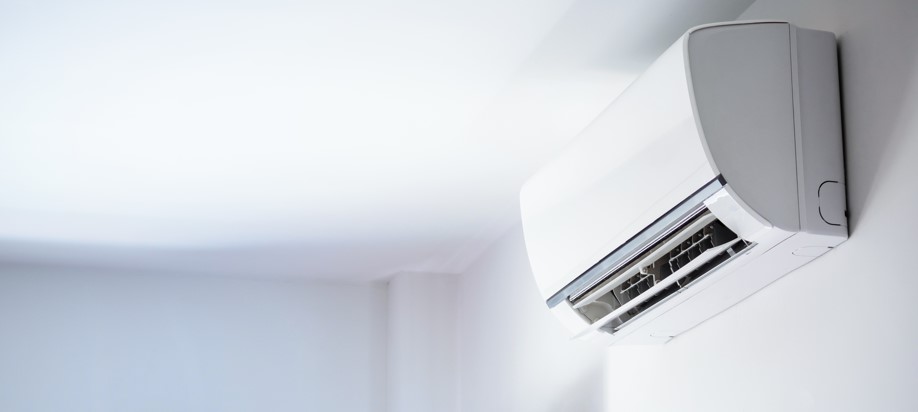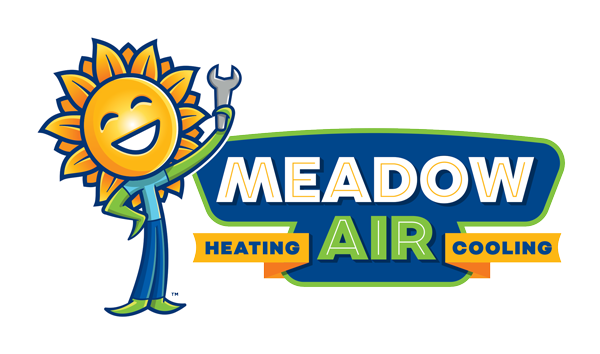Keep Your Air Conditioner From Freezing Up

An air conditioner can be a lifesaver during hot summer months, but when it starts freezing over, it can be a real pain.
If your air conditioner keeps freezing up, it can be a hard problem to deal with. It’s important to keep your air conditioner from freezing because it can cause serious damage to your unit.
So if you’re wondering: how do I keep my air conditioner from freezing up? Here are some tips to keep your AC from freezing and avoid costly repairs.
Change or Clean Your Air Filter
One of the most common causes of a frozen air conditioner is a dirty filter. Essentially, the work of the air filter is to trap dust and debris, which prevents these particles from entering the unit and clogging the coil.
When the filter becomes blocked by dirt and debris, it can restrict airflow causing the evaporator coils to freeze up.
Keeping your filter clean is a simple way to stop your AC from freezing up. The filter should be changed once a month, or if it becomes too dirty.
You can clean the filter with a vacuum or wash it with soap and water. If you find that your filter is damaged, cracked, or torn, replace it immediately as these issues will prevent proper airflow into your AC unit and may cause even more problems down the line.
Unclog the Vents
The vents are one of the most overlooked parts of an AC unit. If your vents are clogged, it can lead to poor airflow, which can cause your system to freeze up or fail completely. Check all vents for blockages and remove any debris that may be present.
You can also clean the vents by taking a vacuum and sucking out any dust that has accumulated. Make sure that all vents are clear of debris and fully functional before turning your AC unit back on.
Clean Evaporator Coil
The evaporator coil is a thin metal plate inside the compressor compartment of your AC unit. It’s what turns refrigerant liquid into gas so it can circulate through your system and cool off your house.
A dirty evaporator coil can cause the AC to freeze because the restricted airflow through the coil can cause the refrigerant to become too cold, which can cause ice to form on the coil. This can reduce the efficiency of the system and can also cause damage to the unit.
Additionally, the frozen ice on the coil can cause the airflow through the unit to be blocked, which can lead to reduced cooling and increased energy consumption. It is important to have the evaporator coil cleaned regularly as part of regular HVAC maintenance to prevent this from happening.
Fix Your Fan
The fan is the heart of your AC. It blows air from outside through the vents, then pushes it across the evaporator coil so that it can be cooled via a refrigerant cycle.
The fan needs to be working properly in order for your AC to function properly. If the fan is broken, it can cause the evaporate coils to freeze up.
How do you know if your fan is broken? It’s easy. Just put your hand near the vent. If you feel cold air coming out, then your fan is in good working order; if not, then it may be broken and need to be replaced.
Check the Refrigerant Level
If the refrigerant levels in an air conditioning system are too low, it can cause the evaporator coil to freeze. This is because the refrigerant is responsible for absorbing heat from the air passing over the coil, and if there is not enough refrigerant present, the coil will not be able to absorb enough heat.
The lack of heat absorption causes the temperature of the coil to drop below freezing, resulting in the formation of ice on the coil. In addition, low refrigerant levels can also cause reduced airflow over the coil which exacerbates the problem.
It is important to have a qualified and reputable technician check and adjust the refrigerant levels in your AC system to prevent freezing.
Get Rid of Dirt and Debris Around the Outdoor Unit
Dirt and debris can impede the flow of air to the unit, which can cause the coils to become too cold and freeze. Additionally, dirt and debris can also clog the condensate drain, which can also cause the unit to freeze. It is important to keep the outdoor unit clean and clear of debris to ensure proper operation and prevent damage to the unit.
Check the Thermostat
If your AC unit is freezing, it could be caused by a malfunctioning thermostat. The work of the thermostat is to control the temperature in your home and communicate with the air conditioner to turn it on and off as needed.
If the thermostat is not working properly or it’s set too low, it may cause your unit to freeze.
To check if your thermostat is causing the AC unit to freeze, unplug it from the outlet, wait a few minutes, then plug it back in. If you see no change in temperature or airflow when the unit kicks on again, it could be because of an issue with your thermostat.
Schedule Regular AC Tune-Ups and Maintenance
A frozen AC unit can cause:
- Reduced efficiency: When the AC unit freezes, it loses its ability to cool your home. This can lead to higher utility bills and may even cause your unit to break down completely.
- Poor air quality: When humidity builds up inside your home due to a lack of airflow through an air conditioner that’s frozen, mold and mildew may begin growing.
- Increased wear and tear: A frozen unit puts extra strain on the compressor and other components, which can lead to increased wear and tear and the need for more frequent repairs.
- Water damage: A frozen unit can cause water to leak from the unit, which can lead to water damage in the room or surrounding areas.
- Mold and bacteria growth: A frozen unit can also create a breeding ground for mold and bacteria, which can lead to poor indoor air quality.
If you want to avoid an AC unit freeze, it’s important to schedule regular maintenance. Tackling any issues before they become major problems can save you a ton of money in the long run.
If you notice that your air conditioner is freezing up, it’s important to call a professional right away. You may be able to fix the problem yourself, but if not, get help before your unit becomes damaged beyond repair.
Contact Meadow Air for Your AC Needs
A frozen air conditioner is a serious problem, but it doesn’t have to be. If you notice that your AC unit is freezing up, call us for help.
Our technicians will come right over and get your system running again in no time at all. We’re available for emergency AC service, so you can count on us for prompt, professional help when you need it most.
